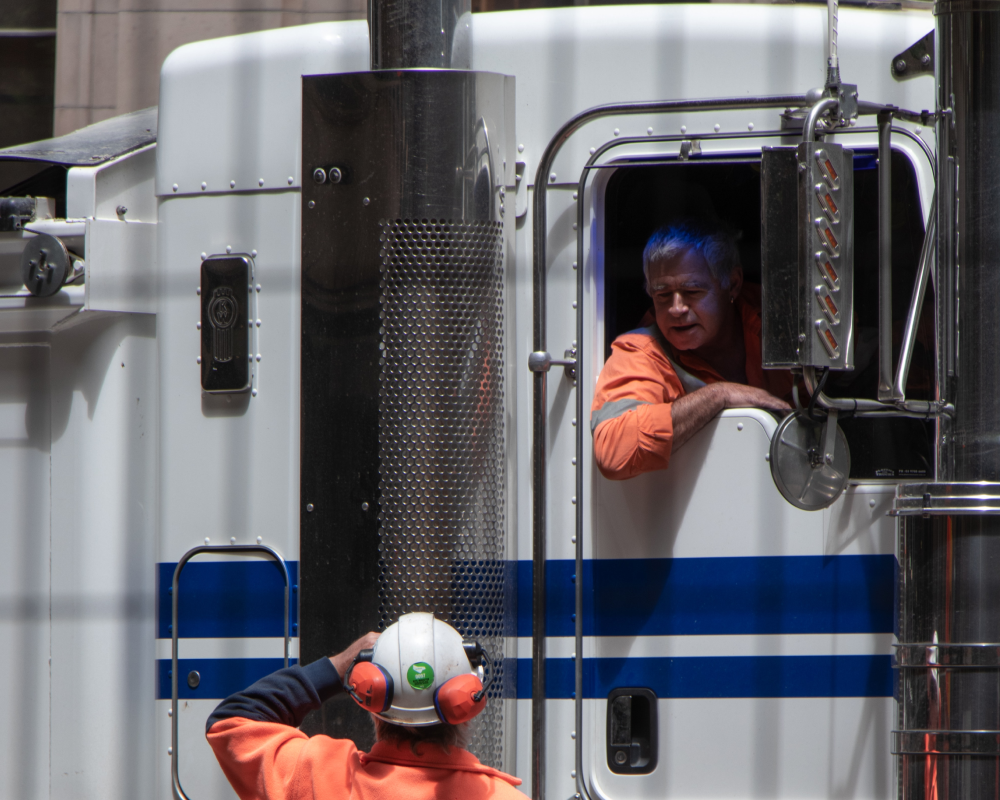
CoR Prosecutions
All parties in a supply chain share a responsibility for ensuring truck safety. This responsibility cannot be contracted out to third parties. What happens when it goes wrong?
Authorities have been active in prosecuting supply chain parties for breaches.
In New South Wales alone, there have been over 5,000 prosecutions against customers of trucking companies.
Learn more about some of the high profile prosecutions throughout Australia. Scroll down to read CoR prosecution case study examples.
Primary Duty Offence
De Paoli Transport was fined $180,000, while its schedulers were individually fined $15,000. The fines were imposed as the company failed to take reasonable steps in relation to five aspects of its heavy vehicle operations including; licencing of its drivers, speeding by drivers, fatigue of drivers, reporting the receipt of infringement notices by company drivers, and training of drivers in respect to the preceding areas.
This case highlights the importance of written directions, effective risk management, compliance monitoring, driver training, and the recognition that a primary duty offence can result in convictions without a collision or fatal accident.
Total costs over $210,000
Load Restraint Prosecution
A consignor of timber goods was convicted and fined $75,000 for a category two offence under the HVNL. The conviction stemmed from a truck rollover incident in which a loaded vehicle carrying 26 tonnes of imported timber plywood products overturned onto a pedestrian island crossing. The consignor breached its safety duty by exposing drivers and members of the public to the risk of death or serious injury.
The investigation revealed additional failures on the part of the consignor, including non-compliance with its own Chain of Responsibility policy. The incident highlights the significant safety risks associated with unsecured or improperly packed freight in shipping containers transported by road, posing dangers to drivers, workers, road users, and the community as a whole.
Total cost $75,000
Load Restraint Prosecution
A consignor (the importer) and carrier were both found guilty for poor load restraint within a container, with the load shifting as the truck turned a corner, tipping the truck over and crushing a car, killing its occupant.
Total cost of over $150,000
Load Restraint Prosecution
Air Liquide, a global supplier of industrial gases, enlisted the services of Doble Express, a transport operator, to transport gas cylinders on its behalf. During the transportation, the Doble driver used only one ratchet strap to secure the 3.5-tonne cylinders. As the driver was maneuvering a bend at a high speed, the cylinders shifted, destabilizing the trailer and truck, resulting in a collision that tragically resulted in the death of another motorist.
Both Doble and Air Liquide were prosecuted and fined, demonstrating that where one party is found to be primarily at fault, other parties may be investigated for their actions or lack thereof.
Total cost to defendants exceeded $140,000
Mass Management (Axle & Gross Weight) Prosecutions
A local council engaged a consignor (Remondis Australia) to deliver mulch. Remondis outsourced the task to a contractor (Jet Group Australia). Remondis, as the consignor, was found guilty of not having a mass management system in place, allowing Jet to carry overloaded vehicles in 2013-14.
Total costs over $1 million
Dimensions Prosecution
This case involved a heavy vehicle carrying scrap metal which struck the M5 tunnel in Sydney causing major damage to the infrastructure, resulting in the tunnel being shut down for 16 hours and causing massive traffic delays. Sims Group Australia Ltd, as the consignor, and Delta Pty Ltd, as the loader, both pleaded guilty to breaching load dimensional requirements.
The Court fined Sims and Delta $3,000 and $6,000 respectively for breaching the Road Transport (General) Act 2005 (NSW). In addition, Sims was ordered to pay approximately $55,400 to RMS for the damage caused to the tunnel, and $40,000 for prosecutor’s costs. Delta was ordered to pay approximately $66,500 to RMS for the damage to the tunnel, and $42,500 for prosecutor’s costs.
Total costs of over $210,000
Fatigue Management Prosecutions
This case revolved around South Penrith Sand & Soil Pty Ltd, a company involved in transporting quarried materials using heavy vehicles. The company came under scrutiny by the NSW Roads and Maritime Services (RMS) after two major road accidents occurred in 2010. In the judgment, the company was fined $42,900 for eight offenses, while the managing director received a personal fine of $40,550 for 19 offenses. The company's scheduler was also fined $5,050 for 12 offenses.
The Court heavily criticised the managing director for failing to familiarise himself with the road transport legislation, specifically as it pertained to the safety of the company's operations. The Court found that the managing director had neglected to address driver tiredness and fatigue, resulting in long hours of driving. The breaches involved six drivers, comprising 40% of the workforce.
Total costs of over $100,000
Speeding Prosecutions
Scott’s Transport and Lennon’s Transport were each fined over $1.2 million for multiple speeding offenses (reduced on appeal but only after ongoing legal defence and brand damage) A carrier was caught speeding 10 times with freight of an LSS client on board each time. The carrier provided different details to the LSS client (via the LSS System) than those provided to authorities. The LSS client was deemed to have taken “reasonable steps” to check on carrier. The carrier was investigated for breaches.
Over $1.2 million for multiple speeding offenses (reduced on appeal)
Roadworthiness/
Equipment Maintenance Prosecution
Brakes on a truck failed and the truck slammed into cars and exploded, killing and injuring other motorists. Authorities grounded the fleet and found systematic sub-standard equipment maintenance. The incident resulted in the regulator fast-tracking Equipment Maintenance as a CoR component and cost the carrier and its parent company an estimated $300 million in fines, lost trade, cancellation of contracts and share devaluation.
An estimated $300 million in fines and business losses
Avoid costly CoR prosecution
Contact us for a no-obligation discussion about your CoR risks and how the CoRsafe system can be applied to your business.









